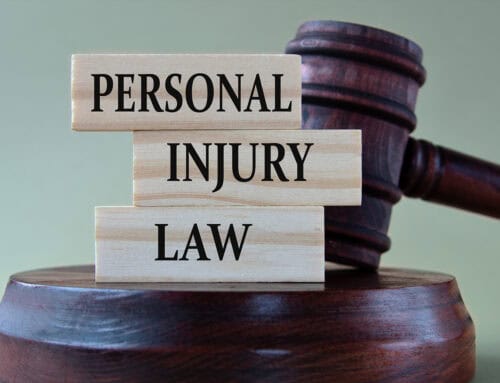How Personal Injury Lawsuits Differ for Children and Adults
When a child suffers an injury due to someone else’s negligence, the legal process unfolds quite differently than it does for adult injury victims. California law recognizes that minors require special protections and considerations throughout personal injury claims. Understanding these differences helps parents and guardians navigate what can be a complex legal landscape during an already difficult time.
The Role of Parents and Guardians
Adults who suffer injuries can file lawsuits on their own behalf. Children cannot. California law requires that a parent or legal guardian file a personal injury claim for a minor. This guardian ad litem acts as the child’s legal representative throughout the entire process, making decisions and signing documents on the child’s behalf.
This requirement exists because minors lack the legal capacity to enter into contracts, including settlement agreements. Even if a teenager understands their situation perfectly well, they cannot legally bind themselves to any agreement without proper adult representation.
Statute of Limitations Considerations
The statute of limitations operates very differently for injured children. In California, adults typically have two years from the date of injury to file a personal injury lawsuit. For children, however, the clock often does not start ticking until they turn 18 years old. At the Law Offices of Brent D. George, we help families understand these critical timelines to protect their children’s legal rights.
This extended timeframe recognizes that young children cannot advocate for themselves and that some injuries may not manifest fully until years later. A child injured at age 8 generally has until their 20th birthday to file a claim. This protective measure ensures that no child loses their right to compensation simply because their parents or guardians failed to act promptly.
There are exceptions to this rule. If a claim involves a government entity, different deadlines apply, and these can be much shorter. Medical malpractice cases involving minors also have specific time limitations that families should understand early in the process.
Court Approval Requirements
Perhaps the most significant difference between adult and child injury cases involves settlement approval. When an adult reaches a settlement agreement, they can accept it without court involvement. Child settlements require judicial review and approval in California.
A judge must examine the proposed settlement to ensure it serves the child’s best interests. The court reviews the injury details, medical treatment, proposed compensation, and how the settlement funds will be managed. This oversight protects children from settlements that might benefit adults at the expense of the minor’s long-term needs.
The approval process involves filing a petition, providing detailed documentation, and sometimes attending a hearing. While this adds time and procedural steps, it provides crucial protection for vulnerable injury victims.
How Settlement Funds Are Managed
Adults receive their settlement proceeds directly and can spend the money as they choose. Children’s settlement funds face strict management requirements under California law.
For smaller settlements (typically under $5,000), a parent or guardian may receive the funds directly with a promise to use them for the child’s benefit. For larger amounts, the court usually requires that money be placed in a blocked account. This special bank account prevents anyone, including parents, from accessing the funds until the child reaches 18 years of age.
In some cases, courts may approve a structured settlement that provides periodic payments rather than a lump sum. These arrangements can offer tax advantages and ensure funds remain available throughout the child’s development.
For substantial settlements, the court might require establishing a special needs trust or appointing a professional guardian to manage the funds. These measures protect significant financial awards from mismanagement or depletion.
Evaluating Damages in Child Injury Cases
Calculating compensation for an injured child requires different considerations than adult cases. While medical expenses and pain and suffering apply to both, children face unique damages.
Future medical needs can be substantial if an injury causes permanent disability or requires ongoing treatment into adulthood. Expert testimony often helps project these long-term costs, which may span decades.
Lost earning capacity becomes relevant when injuries will affect a child’s future ability to work. Unlike adults who have established work histories and salaries, evaluating a child’s potential earnings requires careful analysis of how their injuries might limit career options.
Educational impacts matter greatly. If injuries interfere with learning, require special education services, or prevent a child from pursuing certain educational paths, these factors contribute to the overall damage calculation.
Special Considerations for California Families
California law provides robust protections for injured children, but navigating the legal system still presents challenges. Medical records must be gathered, expert witnesses identified, and complex court procedures followed. The requirement for judicial approval means even straightforward cases involve more steps than adult claims.
Families dealing with a child’s injury already face emotional and financial stress. Medical appointments, therapy sessions, and helping a child recover take enormous energy. Adding legal proceedings to this burden can feel overwhelming.
Working with legal professionals who understand both the procedural requirements and the sensitive nature of child injury cases makes a meaningful difference. The Law Offices of Brent D. George has experience guiding California families through personal injury claims, including those involving minor children. Our approach focuses on protecting children’s rights while minimizing additional stress on families during recovery.
Taking the First Step
If your child has been injured due to someone else’s negligence, time matters even with the extended statute of limitations. Evidence can disappear, witnesses’ memories fade, and medical records become harder to obtain as time passes. Early consultation with a legal professional helps preserve your child’s rights while ensuring nothing important gets overlooked.
Children deserve the same quality representation as adults, with the additional protections California law provides. Understanding how child injury cases differ from adult claims empowers parents to make informed decisions about their family’s future. The Law Offices of Brent D. George is here to answer your questions and provide guidance tailored to your family’s unique situation. When legal guidance becomes necessary, seeking professionals who understand these unique requirements helps ensure the best possible outcome for your child.
To discuss your situation and learn more about your options, contact us today for a free confidential consultation.
Disclaimer: This article is intended for informational purposes only and does not constitute legal advice. For personalized assistance, please contact our office at (805)494-8400.






